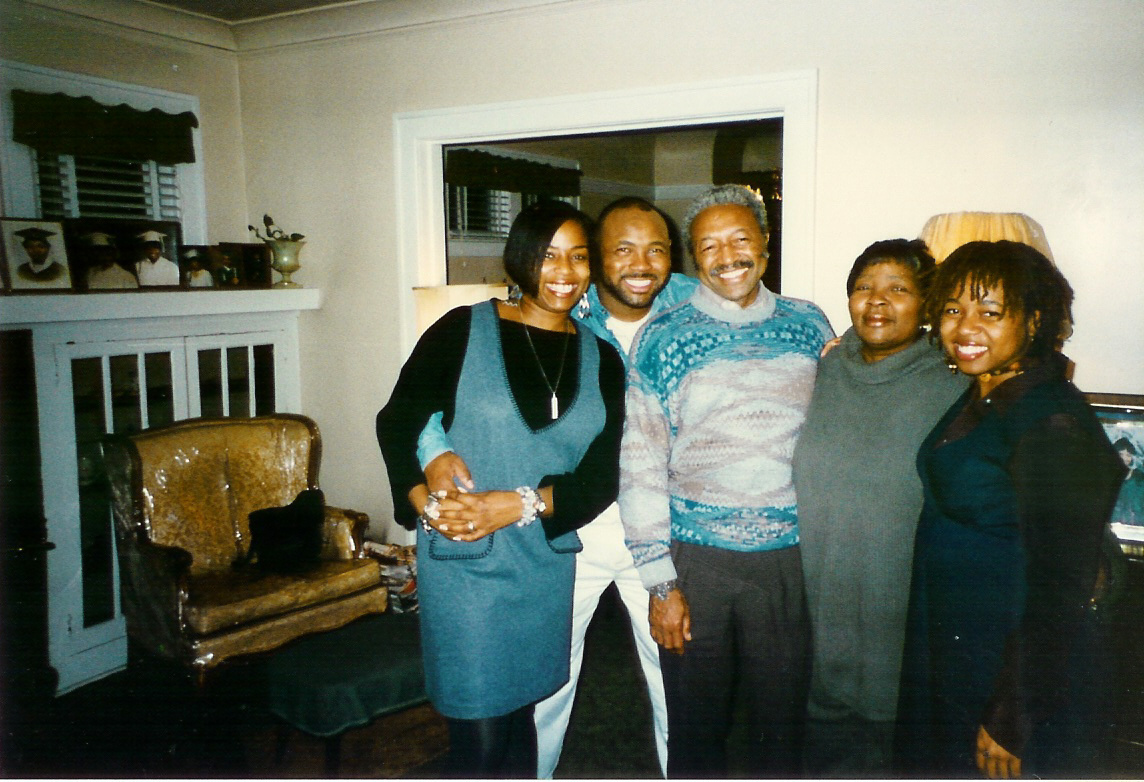The following is a comment from one of my readers that I thought was too poignant to just remain in the comment section. It is today’s post. Please give her your feedback and let’s keep the dialogue going.
By Nicole “Nikki” Parker

Nicole Parker used to struggle with women hatin' on her for having long, fine hair. Through Christ, she has been set free!
My hair wars are sort of different, to an extent. I always had long hair. I have fine, thin hair that grows like wildflowers. I didn’t have confidence in my hair. Quite the opposite. Though my hair is fine, I permed (relaxed) it to fit in, and I cut it to make it less obvious that it’s long. I didn’t understand how my hair had anything to do with who I was and so in turn I felt if I walked in a room I should naturally apologize for my long hair, what most people would call “white girl hair.” After I got over the perm pressures about 10 years ago, my hair grew healthier and longer and I would get the same “OMG” and “How long and pretty your hair is” looks and comments. These comments made me feel uncomfortable because the tone wasn’t “You really have nice hair”; they were more like, “I wish I had your hair and you MUST think you’re all that.” So about five years ago for every summer thereafter I would cut my hair to my neck in a bob and that would keep the comments to a minimum except for the initial shock that I even had the nerve to cut off “all that pretty hair.” I never appreciated the hair God gave me because I wasn’t secure in who I was in Him.
I realized my insecurity had nothing to do with my hair, just how I felt about it and what I was trained to believe growing up: that hair somehow defines me and puts me in a typical stereotype of light skinned/long haired females have no depth and are superficial. That is the complete opposite of who I am, NOW, anyway, because people will have you thinking one thing about yourself so much, YOU start to believe it! But when God showed me I can’t take credit for anything, especially the length or grade of my hair, I seriously I had to get a grip and help other women realize that the outer appearance is not even worth mentioning if our hearts aren’t right before God. The battle continues because women are always looking at the next woman to compare themselves to, and it’s not necessary because our eyes should be on Christ alone and then and only then can we accept who we are and that our physical man, including hair, is just clay.
We represent Christ so I’m not suggesting we don’t take care of what He has given us. However, I am saying as women of God we should seek first Him and he’ll take care of everything else. He’ll teach us how to carry ourselves in modesty. He’ll teach us how to be sensitive to others who have not had the revelation yet that the inner man is far more valuable than the outer man. He’ll tell us through the Holy Spirit when we’re tripping and going too far or not far enough. He’s a God that is involved! So with that in mind I can walk around with all of my “long pretty hair” and not feel like apologizing but smiling, representing that the old stereotypes are dead to me because my Daddy told me to love what He created in me and every woman I see with locks, press and curl, fade, bob, waist length, shoulder length, long and flowing, tight curls, afros, etc. It doesn’t matter to Him; it’s our heart he’s after!


